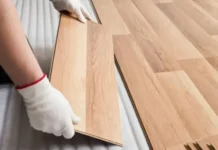Real estate experts agree that a home inspection is crucial, particularly for buyers who may need a contingency to get out of a bad contract penalty-free.
There are different kinds of home inspections, and even sellers may want to get in on the home inspection action. The question is, how long does a home inspection take? What kinds of home inspections are there and when are they worth getting?
Understanding how different home inspections work (and how long they take) can help you decide which one is best for your circumstances.
Read on to find out everything you need to know about the different kinds of home inspections and how long they take–plus more.
How Long Does a Home Inspection Take on Average?
The time it takes to complete a home inspection will vary based on a few different factors. These include:
- The type of home inspection you’re getting
- The size of the property being inspected
- The age of the property being inspected
- Whether or not you attend the home inspection in person
On average, we estimate that most home inspections will take roughly 2 to 4 hours. However, homes that are larger or have more extensive damage may require a longer inspection.
Most home inspectors will allow you, and even encourage you, to attend the home inspection. That way, they can walk you through what they’re looking at and any concerns they may have. However, this can make the home inspection take a little bit longer.
What are the different kinds of inspections? Let’s take a look.
Home Inspections for Sellers
Home inspections for sellers are not much different than home inspections for buyers. Your home inspector will look at things like:
- Foundation
- Plumbing
- Electrical wiring
- Structural components
- Heating and cooling systems
- Windows and doors
We consider this a sort of all-encompassing home inspection. It tends to take closer to 4 hours to examine all of these elements of your property.
When to Get a Home Inspection as a Seller
Many sellers skip the home inspection process, but if you’re selling as-is or you’re selling a home that needs a good deal of work, we recommend getting one. Getting a home inspection before you list can give you an idea of where you should focus your home improvement efforts and financing. It can also prepare you for what the buyer’s inspector is going to point out and give you a better sense of your property’s current value.
Standard Home Inspections for Buyers
As we mentioned earlier, the home inspection a seller may get look a lot like the standard home inspection a seller will get. In other words, they tend to cover the same things. It’s best that you set aside at least four hours for your home inspection as a buyer, just to make sure that you have all of your questions answered thoroughly.
When to Get a Standard Home Inspection as a Buyer
We always recommend that buyers get home inspections. A home inspection can reveal issues with the property that aren’t visible to the naked eye and prevent you from investing too much in a property that needs costly repairs. As we mentioned earlier, it can also help you get out of a bad contract penalty-free if the inspection reveals substantial issues.
In most cases, you will also need to get a home inspection when you’re applying for your loans and mortgage. In some instances, the insurer may require you to hire a home inspector of their choice.
4 Point Home Inspections
A 4 point home inspection looks at, of course, 4 specific things on your property. These include:
- Roof
- Electrical
- Plumbing
- HVAC
Because a 4 point home inspection covers less ground than a standard home inspection, it tends to take less time. You can usually expect your 4 point home inspection to be complete within 2 hours.
When to Get a 4 Point Home Inspection
A 4 point home inspection is typically a requirement when you’re purchasing insurance or renewing an existing policy for an older property. In fact, we recommend sticking with the 4 point home inspection when working with your insurance agency, rather than giving them more information than they’re asking for. This can help to prevent unnecessary raises on your premiums or deductible.
Specialty Inspections: Mold and Pests
There are a few things that home inspections don’t assess in detail that you may be worried about. In particular, some buyers are concerned about mold or termites, and a standard home inspection won’t really answer all of your questions about these things. In other words, you’ll need to hire a mold inspector or a pest inspector if you want real answers to these questions.
Should You Get a Specialty Inspection?
Is it worth getting a specialty inspection? It will cost extra and it will take up more of your time.
If your standard home inspector makes a note that the property appears to have a mold or termite issue, you may not need to know much more. At the end of the day, it won’t make that much of a difference what kind of mold you’re dealing with or how many termites you’re looking at. Either way, you’ll have to have these things eradicated and it’s more important that you decide whether or not you want to deal with that process or if you want to keep looking for a different home to buy.
Get Your Money’s Worth With the Right Home Inspection
If you’re getting ready to buy or sell a property, you’ve probably got home inspections on the brain. How long does a home inspection take and which kind should you get? We hope that our guide has answered your questions and then some.
Buying a property is a big investment. If you’re wondering what other kinds of investments you should be making, take a look at our investments section.



































































